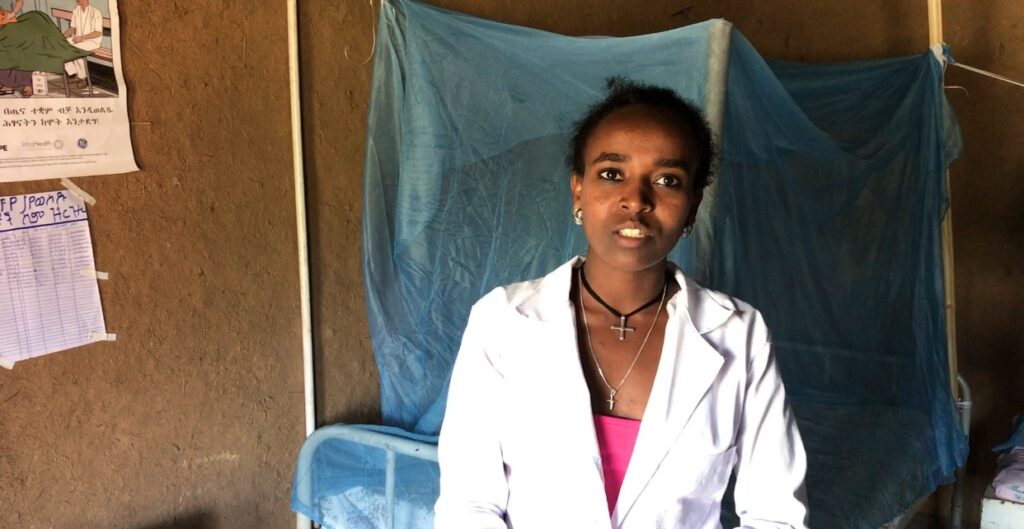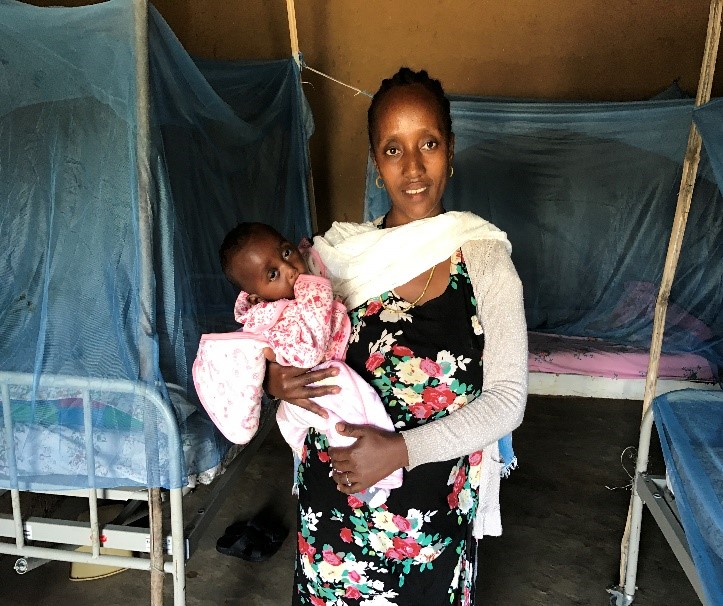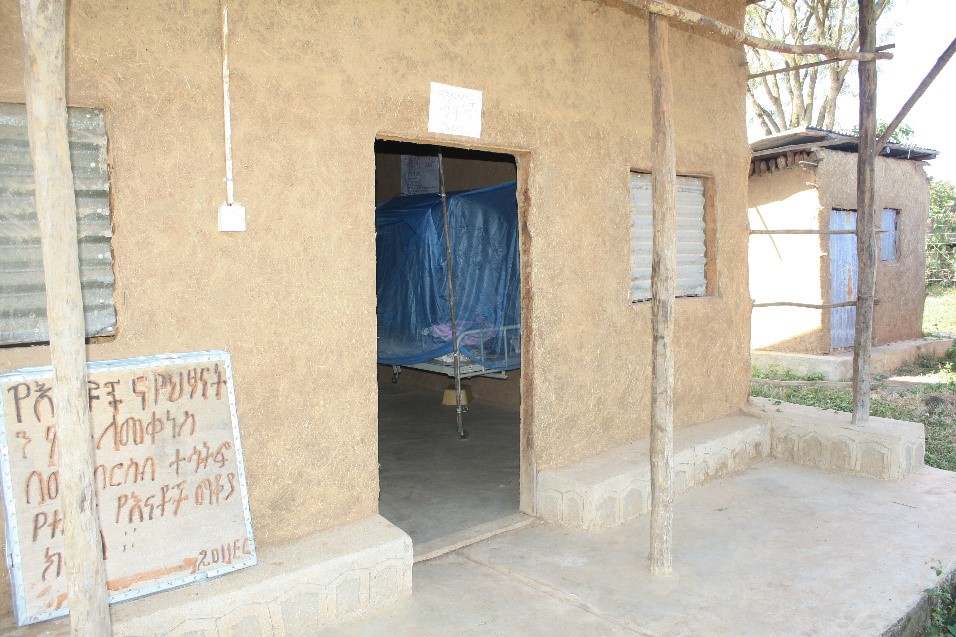Globally, more than 75% of maternal and newborn deaths occur during pregnancy, delivery, and after giving birth. In resource limited countries, such as Ethiopia, contributing factors include a lack of trained health professionals, poor health facility infrastructure and inaccessible geographic locations, lack of adequate transportation, and unaffordable costs associated with health services. In an effort to reduce maternal and newborn mortality, the Ministry of Health has supported the construction of maternity waiting homes within health facilities since 2014. The use of maternity waiting homes enables increased maternal health service utilization, particularly among women living in areas where distance, topography, and road access are barriers to timely access to health facilities.
In support of reduced maternal and newborn mortality, USAID Transform Health in Developing Regions (THDR) is working to address these barriers in the developing regions of Ethiopia: Afar, Benishangul-Gumuz, Gambella, and Somali Region. The overall objective is to provide health systems strengthening support to health facilities such that women and children can obtain reproductive, maternal, and child health services. Transform HDR has supported the health systems of developing regions by delivering training to health workers on Basic Emergency Obstetric and Newborn Care (BemONC), Integrated Management of Neonatal and Childhood Illnesses, and Infection Prevention, as well as providing continuous on-site supervision to improve the quality of health services. Encouraging staff and communities to construct maternal waiting homes themselves has also been a critical component of the effort to increase the quality of care. Transform HDR provided start-up equipment and on-site mentoring to staff, including tools to monitor and evaluate maternal and child health service provision.
Bekuji Health Centre in Metekel Zone of the Benishangul-Gumuz Region is one of the health centres supported by THDR. Its maternity waiting home, built through the efforts of the community and health workers, has been immensely beneficial to the surrounding communities. The construction of the maternal waiting home was achieved through in-kind donations and a financial contribution of 76,000 birr both from the community and health centre staff. Pregnant mothers, especially those who come from remote places, can now receive comprehensive healthcare services and have a place to rest and recover after delivery in the maternal waiting homes, without being rushed out of the health centre.

Alem Belay, a midwife at Bekuji Health centre, tries her best to make the women feel at home during their stay. “This month is my turn to take care of mothers in the waiting home. Every month, we take turns to help mothers with their last antenatal follow-up appointments, and after they give birth we provide them with postnatal healthcare services. Most importantly, we try to make them feel as if they were at their home until they are discharged.” Health workers at Bekuji Health Centre, like Ms. Belay, were successful in helping Agegnehush Nesibu feel at home. Agegnehush, a mother who recently delivered at the facility, shared that “this mother’s waiting home is very helpful for mothers like me. Ten months ago, I was here for a few days during my last week of pregnancy. After I gave birth, they brought me here, gave me porridge and coffee; I found it comfortable. They made me feel like I was at home. They provided me with all sorts of care I needed.”

Maternal waiting homes provide incentive for institutional delivery, encouraging pregnant women to make the commute to the nearest health centre where they can receive health services and rest in a setting with easy access to health workers, post-delivery. The changes to service provision at health facilities like Bekuji Health Centre have been impactful to the community and inspirational to staff. Health workers feel supported and encouraged to provide compassionate and high quality maternal care to improve the maternal and child health outcomes of their patients, despite their limited resources. Notable progress has been made across health systems in the developing regions, however, there remains a lot more to do; it is crucial to celebrate successes, like that of the maternal waiting homes at Bekuji Health Centre, as the marathon to strengthening health systems continues with the support of interventions like THDR.
Amref Health Africa teams up with African communities to create lasting health change.

